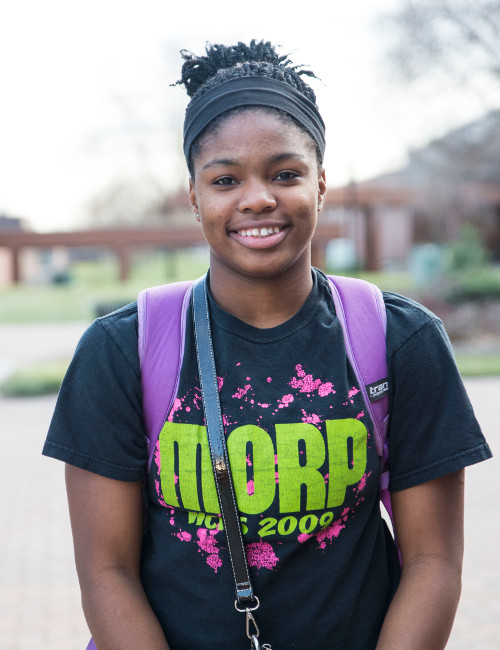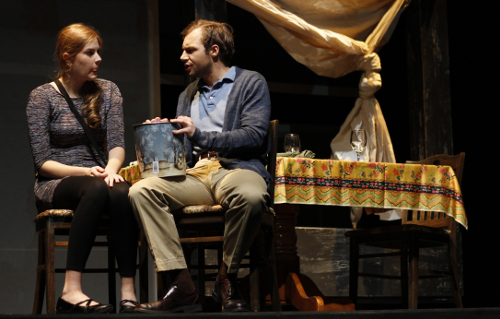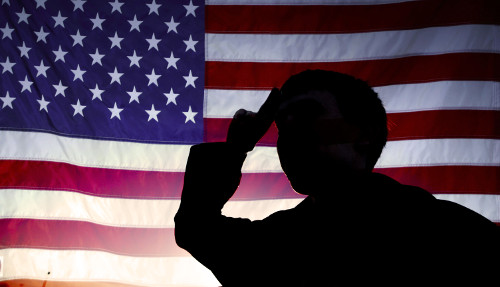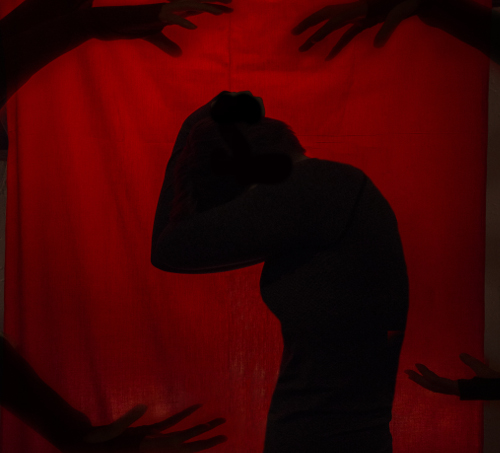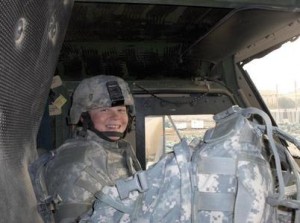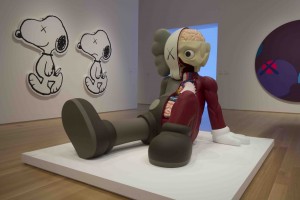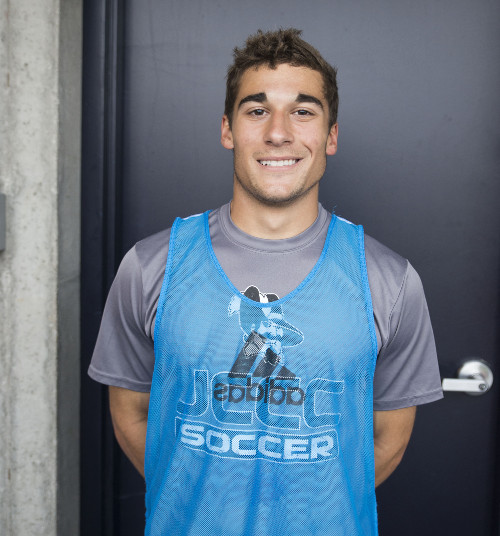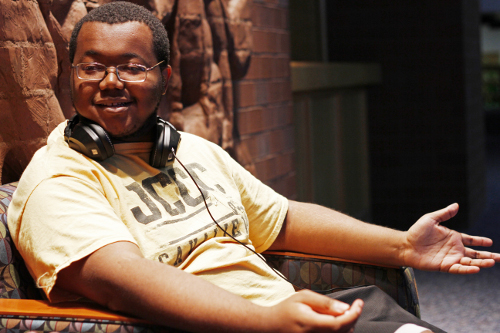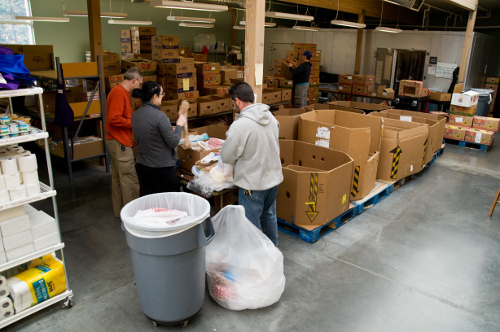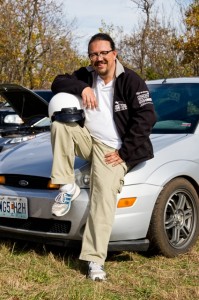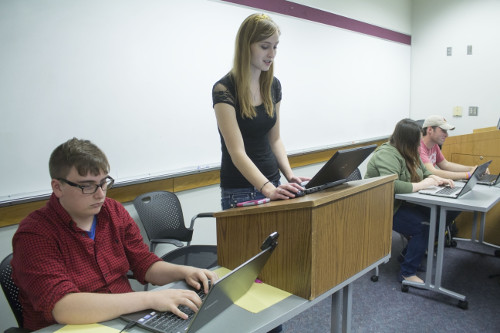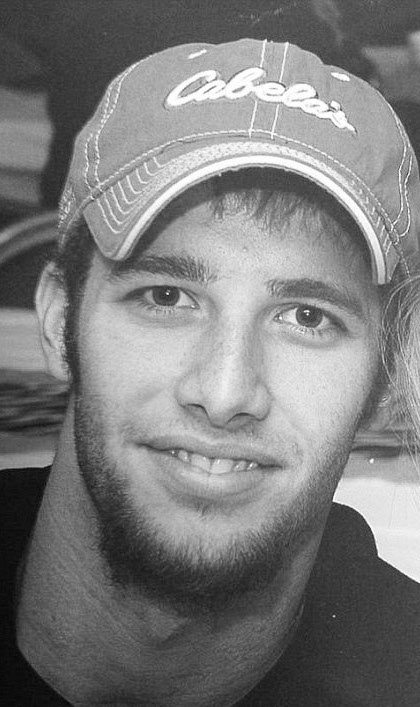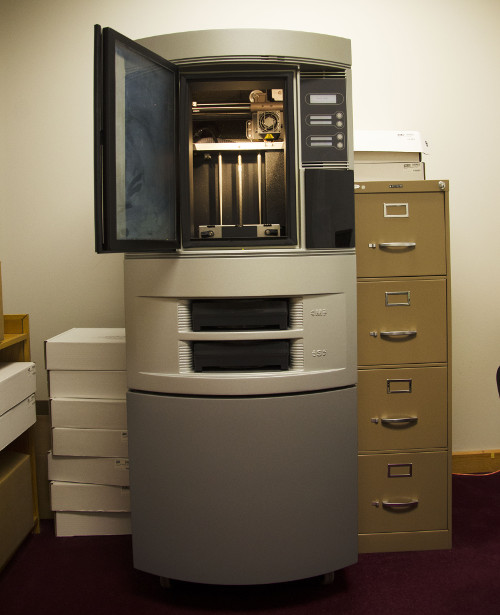Freshman Nieka Wheeler is a criminal justice major that has started every game for the Lady Cavs basketball team this semester. Wheeler is one of three players with a double digit points average, 11.8 and also is second on the team with 7.2 rebounds per game. The Cavs were undefeated at 6-0 as of press time.
TEAM GOALS
“Our team goals are just to play as a team and think about us more than our opponents. Just get that connection and maturity on the team because we have so many freshman.”
HOW DO YOU KEEP FOCUSED WHEN THE GAME GETS OUT OF HAND?
“When we practice we go hard. [Conrad] tells us to go hard every single time, every day, urgency. We have to have that in the game. We know if we are practicing it, even if we don’t have the competition, we push ourselves, because we want to be better. It’s stuck in our minds.”
WILL THE TEAM BE MENTALLY READY FOR THE CLOSER GAMES AGAINST TOUGHER COMPETITION?
“I think we will be. If we don’t get competition in games, we play against guys in practice and they are so much faster, so much stronger than girls that we really will be prepared for when we face better teams. We already have that mindset of being stronger and faster and better.”
PERSONAL GOALS
“Give my all to the team, to be team oriented rather than think about me, myself and I. Another goal is to have that concentration, [Conrad] always tells us to have concentration and focus on what we are doing.”
FAVORITE MOVIE
“The Blindside. [Oher] goes through so much. There are people helping him and it’s sports; that’s probably another reason. It shows a lot of people don’t have it easy, I’m familiar with that. You don’t have it easy, but if you work hard you get where you want to be; I definitely relate to that.”
FAVORITE ARTIST
“I don’t have a favorite artist because I listen to all different types. I don’t have a specific type; if it sounds good I listen to it. Right now I’m listening to the “300 Violin Orchestra” (by Jorge Quintero), there’s no words; it’s just like violins and everything. This beat that gets you hyped and prepared for everything.”
DREAM JOB
“An FBI agent. I want to be out in the field, and I know this sounds weird but being able to hold a gun (laughter). I don’t know; it’s exciting being a part of it and actually doing stuff. I’ve watched “CSI” and “Criminal Minds” and all that stuff, but I’ve always wanted to help people. I’m always the one that wants to be in the situation that solves it.”
Compiled by Mac Moore, sports editor, at mmoore82@jccc.edu.






















